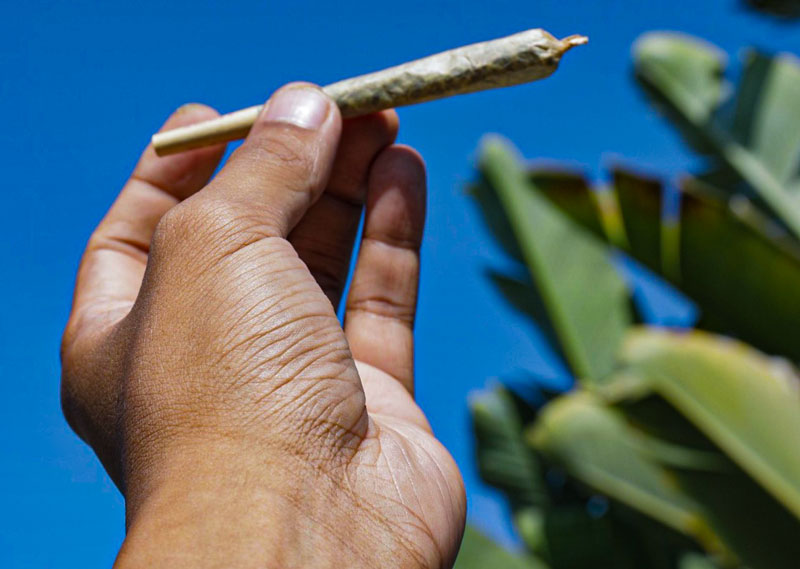Missouri has an interesting history with medical marijuana. For years, the state seemed to be against legalizing cannabis for medical use. But recent laws have brought medical cannabis within reach of patients. In November 2018, medical marijuana passed a vote. Qualifying patients will have access to the help that they choose. This sparks a win for not only cannabis freedom advocates but for patients who want absolute control over their condition management.
However, this leap forward comes with caveats, as many in Missouri are beginning to realize. One of the more prominent issues facing many in medical marijuana patients—or potential ones—revolves around gun ownership.
Missouri has relatively mild gun laws. Background checks are not necessary for private sales, firearm registration is not mandatory, open carry permits are not required, and so on. For many in the state, this is a sign of true red-blooded American freedom. For those freedom-loving individuals who also seek a medical marijuana card, there are hurdles. At the base of their problem lies the fact that medical marijuana cardholders may not, under federal law, own a firearm.
According to the Bureau of Alcohol, Tobacco, Firearms, and Explosives (ATF), regardless of state legality of medical or recreational cannabis, firearm ownership excludes anyone who possesses and uses marijuana. While this is yet another clear sign of the lack of understanding that the federal government chooses to portray, it is still the law. Of course, state laws are more of a legal grey area, but federal law may still cause issues for anyone wanting a card but also to retain ownership of their firearms. To lie on a federal form is a federal offense. This is something to consider heavily before purchasing a gun as a medical marijuana cardholder in Missouri (or any state, for that matter).
Regardless of this backwards stance that the fed takes on medical marijuana, Missouri cannabis is moving forward at a steady pace. In the next few years, it will be interesting to see how not only state laws adapt to the growing support of medical marijuana, but also how the federal government changes, if it does. Of course, these sorts of big changes take a long time. That time gets exponentially longer at the federal level. Perhaps this is by design; a slower-moving government can be more diligent in ensuring that errors are not being made. On the flip side, it means that more opposition can halt or reverse positive movement.
Finding a Medical Marijuana Doctor in Missouri
For those interested in obtaining a medical marijuana card in the state of Missouri, the steps are fairly simple. First, visit the Missouri Department of Health website to gain an overview. You will find a list of qualifying conditions. If you have any number of those, you are already on the right track.
Why You Should Get Your Medical Marijuana Card
Veriheal has satisfied millions of patients nationwide by giving them access to these benefits
- Larger purchase limits
- Peace of mind
- Enhanced legal protection
- Access to higher potency strains
- Save up to 25% on cannabis purchases
- Skip the line at the dispensary
Next, set up a consultation with a licensed physician. This is a key step because you must have this done within 30 days prior to applying for your medical card. Any certification that is older than 30 days will be discarded, and your application will be rejected.
Once that is taken care of, fill out the online application. This shouldn’t take very long. When you’re finished, submit it electronically.
While this may seem simple, sometimes it may be overwhelming. Consider contacting Veriheal to get your medical marijuana card in Missouri. With our qualified physicians and strong knowledge base, we can get you set up in no time.
Is it easy to get a medical marijuana card in Missouri?
In general, there are 3 steps a patient needs to take to be approved for medical marijuana in Missouri. 1. Meet with a doctor to see if you qualify. 2. Register with the state. 3. Receive your medical card.
What are Missouri’s qualifying conditions?
A patient can get approved for medical marijuana with any of the following conditions: Cancer; Epilepsy; Glaucoma; Unresponsive to other therapy; intractable migraines; a chronic medical condition that causes severe, constant pain or constant muscle spasms, including but not restricted to those related to multiple sclerosis, seizures, Parkinson’s illness, and the syndrome of Tourette; weakening of psychiatric disorders, including but not restricted to post-traumatic stress order, if diagnosed by a psychiatrist licensed by a state; human immunodeficiency virus or syndrome with immune deficiency;
a chronic medical condition that is usually treated with a prescription drug that could lead to physical or psychological dependence when a doctor determines that medical use of cannabis could be efficient in treating that condition and would serve as a safer option to prescription medication; A severe disease; In a physician’s professional judgement, any other chronic, debilitating or other medical condition, including but not restricted to, hepatitis C, lateral amyotrophic sclerosis, inflammatory bowel illness, Crohn’s illness, Huntington’s illness, autism, neuropathy, sickle cell anemia, Alzheimer’s disease agitation, cachexia, and syndrome of wasting.
When will dispensaries open in Missouri?
Sometime towards the middle to end of 2020.
Author, Share & Comments
















